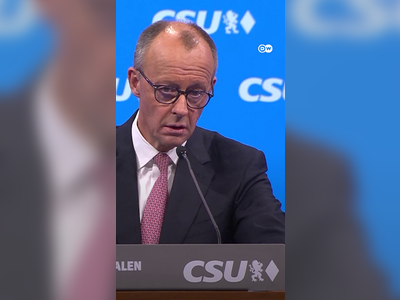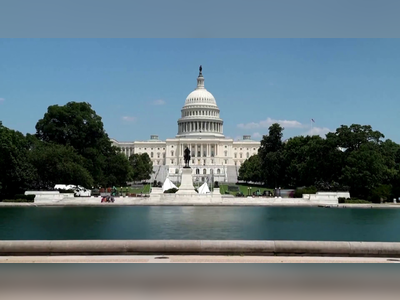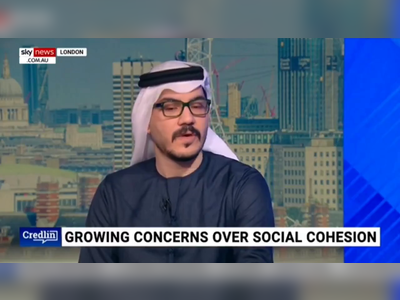Global Inflation Rates Exhibit Varied Trends Amid Economic Recovery
Countries experience diverse inflationary pressures as they navigate post-pandemic recovery, policy challenges, and supply chain disruptions.
Inflation rates across the globe have shown significant variability in recent months as economies continue to recover from the impacts of the COVID-19 pandemic.
Major economies, including the United States, Canada, the Eurozone, and several emerging markets, have reported fluctuating inflation rates influenced by a combination of increased demand, ongoing supply chain disruptions, and policy responses.
In the United States, the Consumer Price Index (CPI) recorded a year-on-year increase of 3.7% in September 2023, slightly down from previous months but still above the Federal Reserve's target of 2%.
Factors contributing to this trend include rising energy prices and persistent supply chain issues stemming from the pandemic.
The Federal Reserve has responded by maintaining higher interest rates aimed at curbing inflation without stifling economic growth.
In Canada, annual inflation for September 2023 was reported at 3.3%, supported by higher prices for gasoline, shelter, and food.
The Bank of Canada has indicated a cautious approach to adjusting interest rates, balancing inflation control with support for economic recovery.
The Eurozone has faced a different set of challenges, with inflation measured at 5.2% in September 2023, down from peak levels earlier in the year but still elevated.
European Central Bank officials have emphasized financial stability while attempting to tame inflationary pressures resulting from increased energy rates and supply chain constraints post-pandemic.
Emerging markets have also felt the impact of rising inflation.
For instance, Brazil reported a year-on-year inflation rate of 4.9% in September, as its central bank continues to navigate interest rate adjustments to stabilize the economy.
Meanwhile, India's inflation rate stood at 6.8%, driven primarily by food prices, prompting discussions surrounding agricultural policies and supply management.
Inflationary pressures have been compounded by geopolitical tensions, particularly those related to the ongoing conflict in Ukraine.
Energy prices have been particularly volatile due to sanctions and shifts in supply dynamics, prompting government interventions in several countries.
The International Monetary Fund (IMF) has noted that global inflation dynamics will require sustained attention from policymakers, especially as nations aim for stronger and more resilient economic recoveries.
As economies move forward, the interplay between inflation management and supporting growth remains a critical focal point for governments and financial institutions worldwide.
Major economies, including the United States, Canada, the Eurozone, and several emerging markets, have reported fluctuating inflation rates influenced by a combination of increased demand, ongoing supply chain disruptions, and policy responses.
In the United States, the Consumer Price Index (CPI) recorded a year-on-year increase of 3.7% in September 2023, slightly down from previous months but still above the Federal Reserve's target of 2%.
Factors contributing to this trend include rising energy prices and persistent supply chain issues stemming from the pandemic.
The Federal Reserve has responded by maintaining higher interest rates aimed at curbing inflation without stifling economic growth.
In Canada, annual inflation for September 2023 was reported at 3.3%, supported by higher prices for gasoline, shelter, and food.
The Bank of Canada has indicated a cautious approach to adjusting interest rates, balancing inflation control with support for economic recovery.
The Eurozone has faced a different set of challenges, with inflation measured at 5.2% in September 2023, down from peak levels earlier in the year but still elevated.
European Central Bank officials have emphasized financial stability while attempting to tame inflationary pressures resulting from increased energy rates and supply chain constraints post-pandemic.
Emerging markets have also felt the impact of rising inflation.
For instance, Brazil reported a year-on-year inflation rate of 4.9% in September, as its central bank continues to navigate interest rate adjustments to stabilize the economy.
Meanwhile, India's inflation rate stood at 6.8%, driven primarily by food prices, prompting discussions surrounding agricultural policies and supply management.
Inflationary pressures have been compounded by geopolitical tensions, particularly those related to the ongoing conflict in Ukraine.
Energy prices have been particularly volatile due to sanctions and shifts in supply dynamics, prompting government interventions in several countries.
The International Monetary Fund (IMF) has noted that global inflation dynamics will require sustained attention from policymakers, especially as nations aim for stronger and more resilient economic recoveries.
As economies move forward, the interplay between inflation management and supporting growth remains a critical focal point for governments and financial institutions worldwide.











